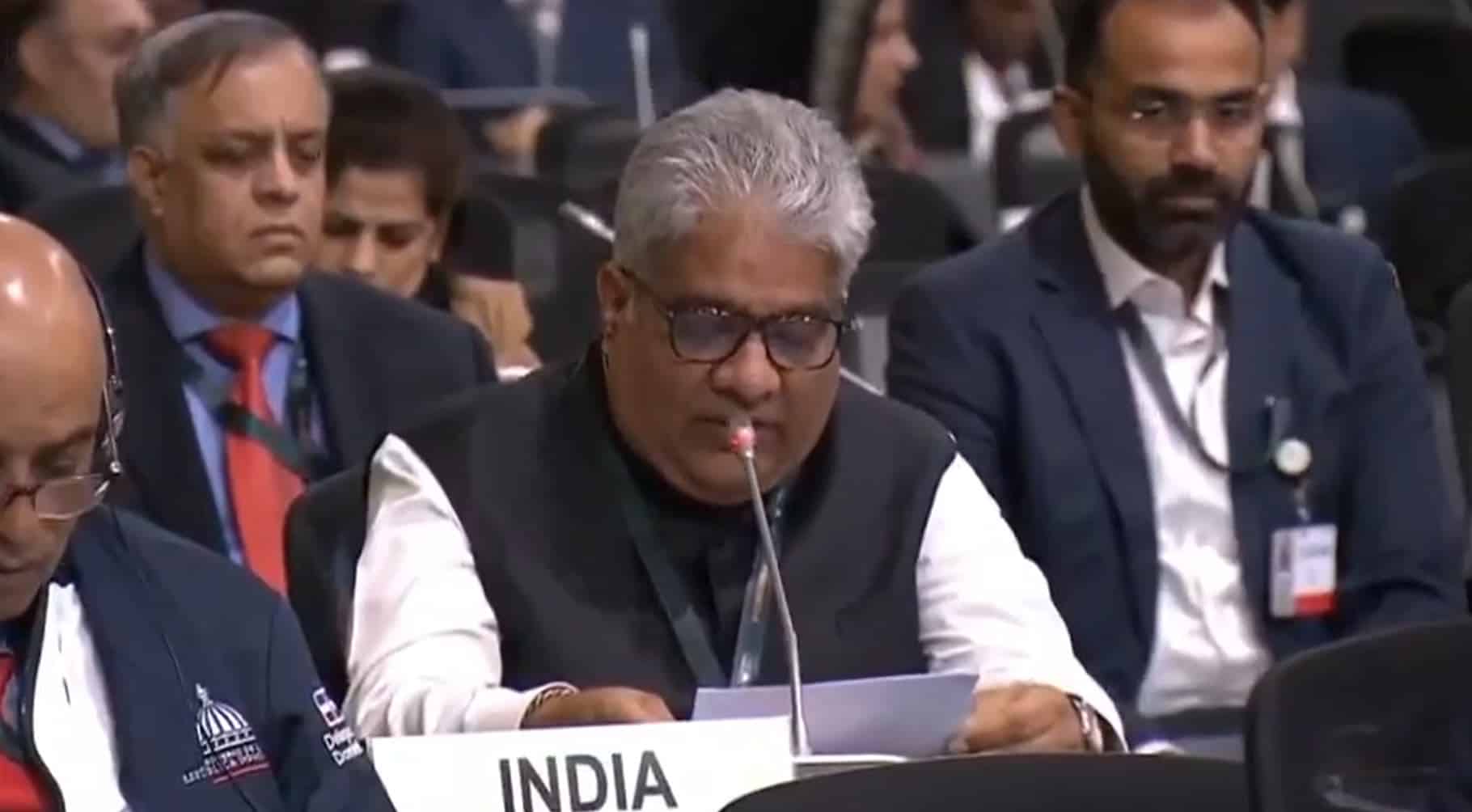Shri Bhupender Yadav delivers India’s Statement during CoP16

India is taking significant strides in addressing the pressing issues of land degradation and desertification. At the 16th Conference of the Parties (CoP16) of the United Nations Convention to Combat Desertification (UNCCD) held in Riyadh, Saudi Arabia, Union Minister for Environment, Forest and Climate Change, Shri Bhupender Yadav, articulated India’s commitment to these global challenges. His address highlighted India’s transformative journey in combating land degradation, emphasizing the need for sustainable development and innovative solutions.
India’s Journey in Combating Land Degradation
During his speech, Minister Yadav outlined the milestones in India’s efforts against land degradation. He noted that the journey began with the global recognition of land degradation as a critical environmental challenge at CoP 5. This recognition paved the way for India to emphasize community-driven land restoration at CoP 10. By CoP 14, India had positioned land restoration as a vital strategy for climate change mitigation. At CoP 15, the global commitment to restore degraded lands was solidified, showcasing a collective effort among nations.
Yadav emphasized that India’s approach is not just about environmental preservation but also about socio-economic development. He recalled the pivotal moment during India’s presidency at CoP 14, where India pledged to restore 26 million hectares of degraded land by 2030. This commitment is complemented by the establishment of a Centre of Excellence on Sustainable Land Management. This center aims to promote scientific approaches to land degradation and share India’s expertise with other countries. Through these initiatives, India is setting a benchmark for other nations in the fight against desertification.
The Socio-Economic Dimensions of Desertification
Minister Yadav stressed the connection between desertification and poverty. He pointed out that land degradation is not merely an environmental issue; it is a socio-economic challenge that affects livelihoods. Recognizing this link, India has initiated various programs aimed at enhancing resilience and recovery in agricultural practices. For instance, the issuance of soil health cards to farmers enables them to adopt sustainable agricultural practices. This initiative is crucial in improving soil health and promoting organic farming.
Furthermore, India is addressing food security and climate change challenges through innovative strategies. By focusing on sustainable agricultural practices, the country is not only enhancing rural prosperity but also creating green jobs. These efforts align with the Sustainable Development Goals (SDGs), showcasing India’s commitment to fostering a sustainable future. The Minister’s remarks reflect a comprehensive understanding of the intertwined nature of environmental health and socio-economic stability.
Proactive Strategies for Drought Resilience
In his address, Yadav highlighted India’s transition from reactive drought responses to proactive strategies centered on preparedness and prevention. He noted that institutions like the Indian Space Research Organisation (ISRO) and the National Remote Sensing Centre play a crucial role in providing drought vulnerability assessments and real-time monitoring. This data-driven approach enables informed decision-making, allowing for timely interventions.
India’s robust space program serves as a platform for other countries to benefit from its expertise in combating drought. The Minister emphasized that strong leadership translates into strong nations committed to proactive actions. By investing in technology and research, India is setting an example for global cooperation in addressing climate challenges. The focus on preparedness not only enhances resilience but also fosters a culture of sustainability that can be replicated in other regions facing similar challenges.
Bilateral Discussions on Sustainable Development
On the sidelines of CoP 16, Minister Yadav engaged in bilateral discussions with his counterparts from Saudi Arabia and Kenya. These meetings focused on matters related to sustainable development and mutual interests. Such dialogues are essential for fostering international cooperation in combating desertification and promoting sustainable practices.
Through these discussions, India aims to strengthen partnerships and share best practices with other nations. The collaborative efforts underscore the importance of a united front in addressing global environmental challenges. By working together, countries can enhance their capacities to combat land degradation and promote sustainable development.
Observer Voice is the one stop site for National, International news, Sports, Editor’s Choice, Art/culture contents, Quotes and much more. We also cover historical contents. Historical contents includes World History, Indian History, and what happened today. The website also covers Entertainment across the India and World.

